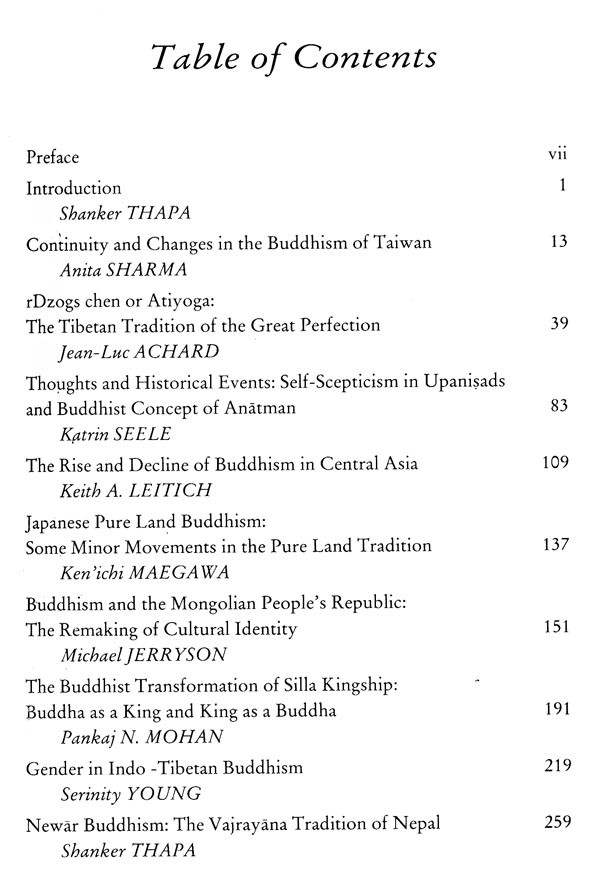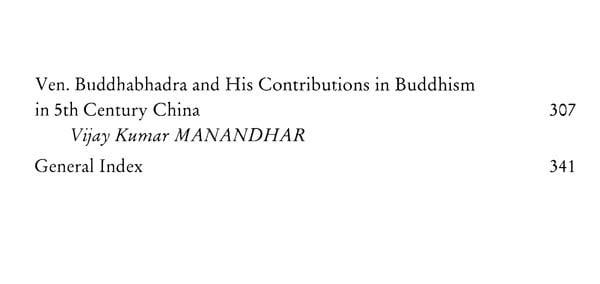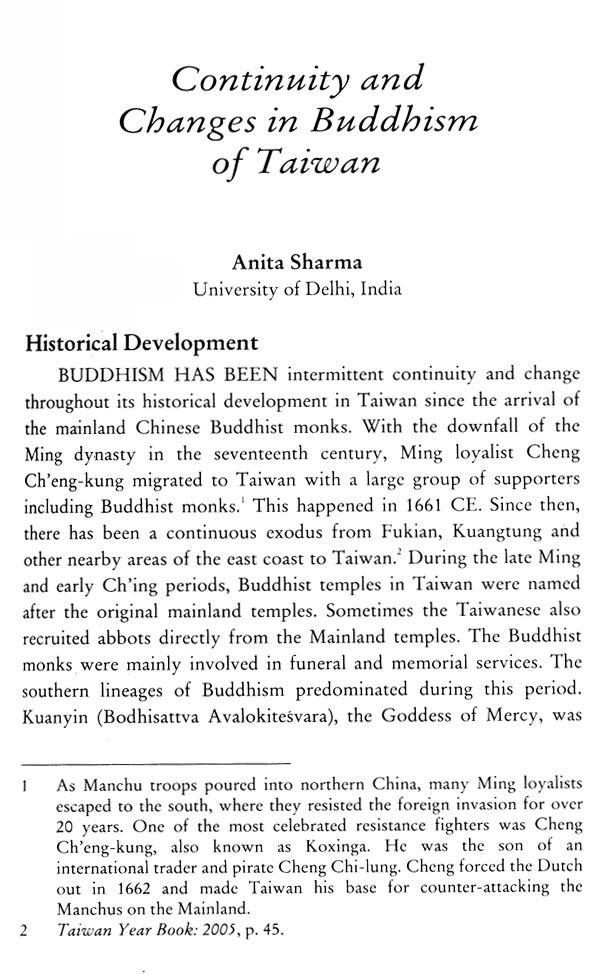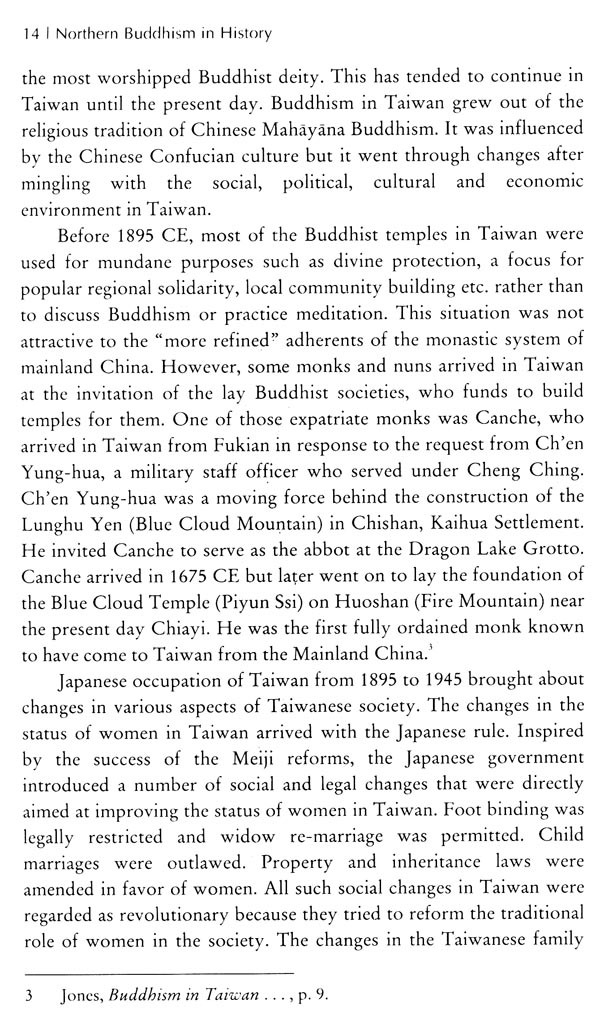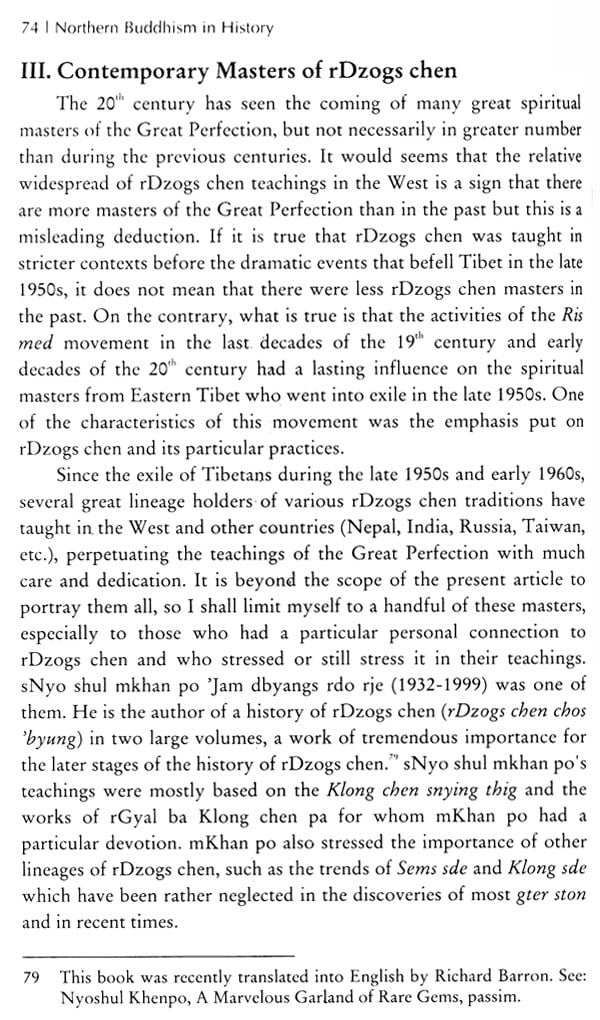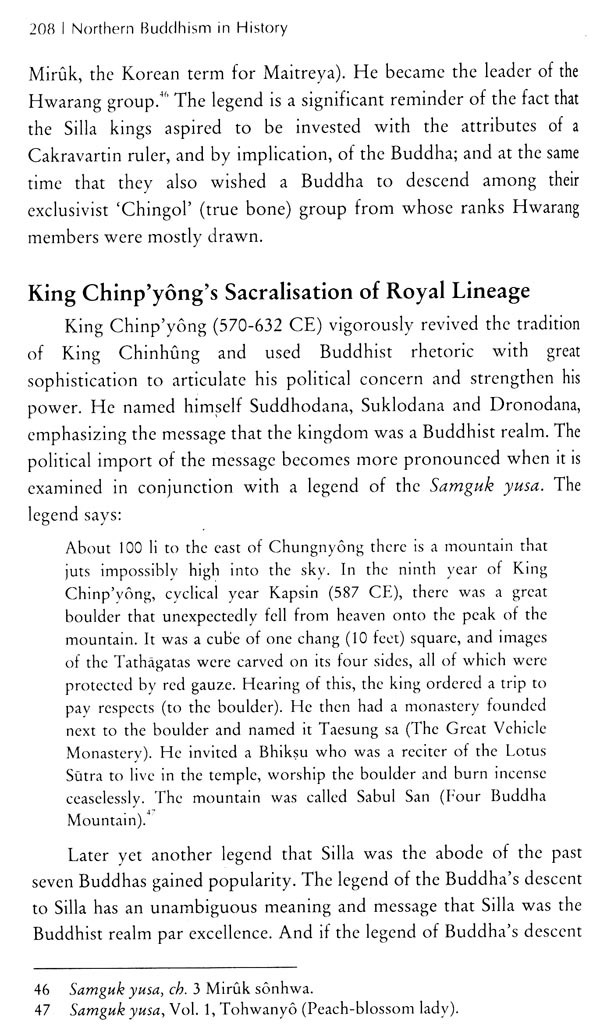
Northern Buddhism in History
Book Specification
| Item Code: | AZG867 |
| Author: | Shanker Thapa |
| Publisher: | VAJRA PUBLICATIONS, NEPAL |
| Language: | ENGLISH |
| Edition: | 2008 |
| ISBN: | 9789937506137 |
| Pages: | 362 |
| Cover: | PAPERBACK |
| Other Details | 8.50x5.50 inch |
| Weight | 460 gm |
Book Description
THE HISTORICAL SITUATION in India on the eve of the origin of Buddhism and also its spread to countries in the north are vital historical aspects of its development and expansion. Buddhism has undergone different historical phases of development in new distant places with diverse social systems and cultural traditions.
Buddhism as a religion has a flexible nature that helped it to adapt to the changed cultural contexts on foreign soil. Its appeal to the problems of desperate people and assurance of a kind of mitigation of their sufferings attracted them into its fold. As a matter of fact, people found a comfortable place to stay there. It, in fact, offered a greater solace to human society compared to other religions of the time. It provided a rational solution to psychological, moral or spiritual problems. It made Buddhism very popular in many places such as all Central Asia, China, Mongolia, Korea and Japan within just a few hundred years of its origin. Mainly Mahayana Buddhism proliferated in this part of the globe. Its tenets were deeply imbedded in the local culture. After Buddhism began in India, it gradually turned into a missionary religion. Buddhism in Central Asia has a glorious history. It is important to note that Buddhism does not possess any sorts of militant characteristics. However, penetration of Islam in Central Asia from Bactria and Parthia finally brought Buddhism to a stand-still. By the 7th Century CE, Buddhism had completely collapsed in the Central Asian region. Islam prevailed over Buddhism and wiped it out from the entire region. During the course of time, Buddhism could not survive in the country of its origin either. This was truly a great loss to the human society.
**Contents and Sample Pages**

